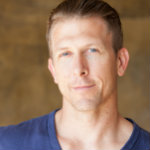 Reading Time: 3 minutes
Reading Time: 3 minutesI am an avowed perfectionist. I find it intimidating to share my setbacks and struggles publicly. I even have a hard time acknowledging them to myself.
For a long time I imagined I was in the minority. That I was one of the few people who couldn’t give themselves a break, who experienced the exquisite pain, disappointment, and judgment of “failing myself,” and who saw the inability to follow through flawlessly as a character defect and evidence of my unshakeable mediocrity.
Nothing has perpetuated these ideas more than keeping them in my own head, unwilling to share.
When we practice showing support for our teammates in the Challenge, it has always been pretty amazing for clearing away that blockage and the beliefs I lug around about success and failure: beliefs about being “good” if I succeed and “bad” if I don’t, beliefs that I use to create value judgments about myself based on whether I fulfilled the requirements and checked off all the boxes.
The simple act of witnessing other people share and celebrate and give themselves permission to move on is a tremendous inspiration for me to do the same.
I have found that by talking publicly about my situation, 99% of the pressure I put on myself disappears. Being able to laugh about something and not take the whole thing so seriously actually becomes an effective long-term strategy for getting me back up on my feet after a stumble.
Maybe even more than that, participating in giving props for small victories and lending a hand to help other people helps change my perspective on my own progress. I’m really no different from anyone else, and if I’m willing to celebrate their small victories and encourage them to keep moving forward when they stumble, why in the world would I not allow the same thing for myself? Why wouldn’t I be at least as generous with myself as I am with them?
It is a profound opportunity to be allowed to step in and support people. It takes a lot for people to ask for a “way to go!” or share about what they think is not going well. Being someone who lets them know it’s cool to do it can make a big difference, and the feedback loop is pretty extraordinary: they feel great, and then I feel great, and everyone is off and running.
This is one of those practices that can be a challenge to keep up. It’s easy to slip into the “only me” version of the Whole Life Challenge – recording your score, seeing where you fall on the leaderboard, logging out. Still, if you maintain the habit of supporting others, it can give your Challenge much more dimension and depth.
The Whole Life Challenge is really about finding your own humanity in the practices of health and well-being. The best way I’ve found for doing that is taking the Challenge off my personal scoreboard and turning it into a platform for supporting my teammates. In the process, I become less of a perfectionist, the self-criticisms leave my head, and I receive as much support as I give.
Did a show of support change the Challenge for you? What was your experience? Share in comments, and help others with your story.







